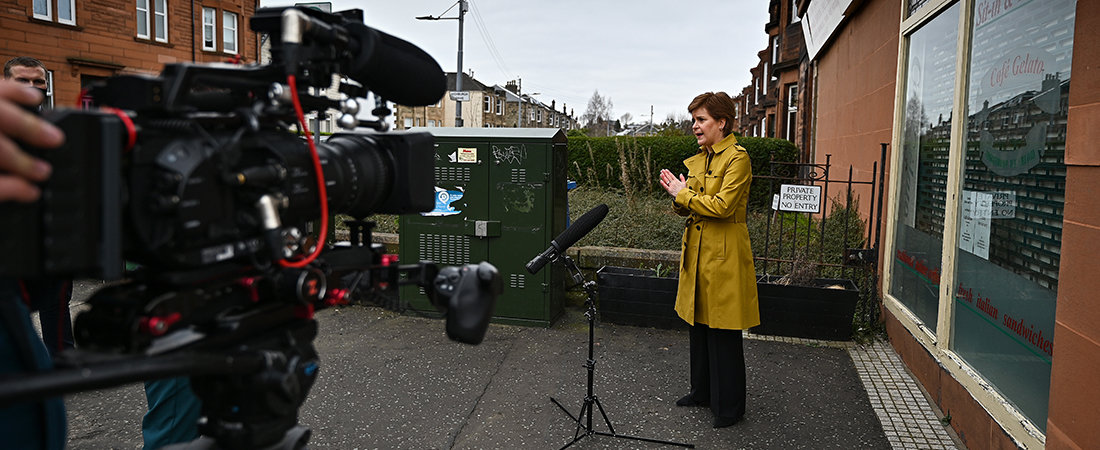As the Scottish Parliament election gets underway, the serving First Minister Nicola Sturgeon could scarcely have hoped for better circumstances in which to launch her campaign to secure a fourth consecutive election victory for the SNP.
The SNP is riding high in the opinion polls, which suggest the Party has every chance of securing an overall majority. A poll of polls suggests a majority of Scots now consistently support independence. And the First Minister is widely regarded as having competently handled the Coronavirus pandemic and its impact on Scotland.
The First Minister has also been buoyed by the crystal clear ruling of the Independent Adviser on the Ministerial Code that she did not mislead Parliament on the Scottish Government’s handling of harassment allegations against the former First Minister Alex Salmond.
The news that Salmond will launch a new pro-independence political party to contest the election may prove to be a thorn in the First Minister’s side. But with Sturgeon’s enviable personal approval ratings in the country, and with Salmond less popular with the electorate than Boris Johnson according to polls, she will be confident that she can comfortably brush off her former mentor.
This election has significant consequences for the future of the UK – and Scotland’s constitutional future will be at the heart of the campaign.
The SNP is seeking to secure a strong and explicit mandate to hold an independence referendum. The launch of Alex Salmond’s new independence party will secure the constitutional question as the major frame of the election – and may pressure the SNP to place a stronger emphasis on the vision and timing for independence than it would have liked to in an election where recovery from the pandemic is front of voters’ minds.
Despite the Prime Minister Boris Johnson’s stonewalling of the issue – a strong showing for pro-independence parties in the election will increase public pressure to accede to nationalist demands. Whether the SNP can secure an overall majority to strengthen that mandate is the key question of the election.
The contest for second place in the election has equally far-reaching consequences for the future of the UK. Until now, the Scottish Conservatives have been the main Unionist opposition to the SNP. But polls suggest they could slip to third place – losing ground to a reinvigorated Scottish Labour Party under new leader Anas Sarwar. The great irony of this campaign is with his approval ratings north of the border at rock bottom, the Prime Minister is depending on a strong showing from the Labour Party to deprive the SNP of a majority – and mandate for a referendum. The extent to which Scottish Labour steals the Conservatives’ clothes as the main force for Unionism in Scotland – or pursues a devolutionist third-way in the tradition of the Labour Party – will be a crucially important factor in how Scotland’s constitutional future develops in the months following the election.
Beyond the constitution, the economic recovery from the pandemic will be a key issue in the campaign. But on this issue, there is a paper-thin difference in policy between the political parties. All support an investment-led recovery. Few – even the Tories – advocate a return to austerity, at least in the short term.
What matters most – is trust.
The opposition parties – both Labour and Conservative – allege the SNP cannot be trusted to prioritise an economic recovery for the country, instead obsessing over independence. The SNP will emphasise the First Minister Nicola Sturgeon’s leadership through the pandemic as a key reason for the public to place their trust in the SNP to lead Scotland to recovery – whilst articulating that a greener, more radical recovery from the pandemic requires the full powers of independence.
The next 6 weeks will bring an unpredictable campaign. This is the first national election in the UK conducted in the middle of the pandemic. It is the first election in Scotland where the question of whether there should be an independence referendum will be tested clearly. And it is the first election in some time in Scotland where the pro-independence vote may not coalesce behind one Party.
All of these variables will make for an unpredictable campaign, and an even less predictable result. But the consequences for the future of the UK will be monumental.

